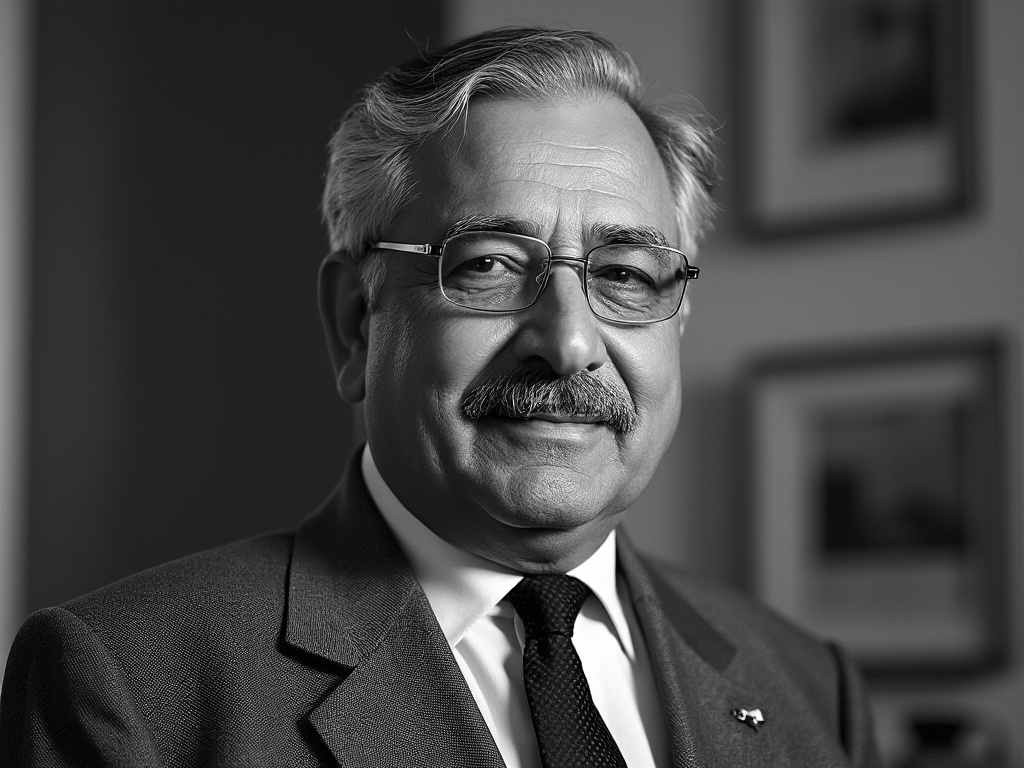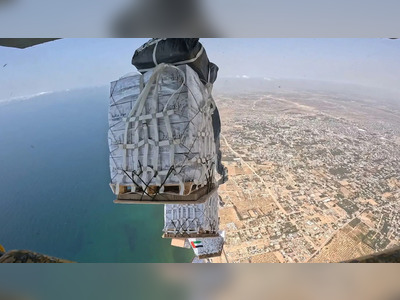
The Legacy of Hamdi Farid: Pioneer of Kuwaiti Television Arts
Hamdi Farid's contributions to Kuwaiti television and drama have left an enduring impact on the cultural landscape of the Gulf region.
Hamdi Farid, an influential Egyptian director, played a pivotal role in shaping the artistic landscape of Kuwait's television drama during its golden era in the 1960s, 70s, and 80s.
Born on January 12, 1916, in Alexandria, Egypt, Farid moved to Cairo to work at Egypt's nascent television service shortly after its inauguration in 1960. His transition to Kuwait came at the request of the Kuwaiti Ministry of Information when the country sought to enhance its cultural and media sectors following its independence in 1961.
At the time of his arrival, Kuwait's television industry had a limited number of directors.
Hamdi Farid quickly adapted to the local environment, establishing fruitful collaborations with icons of the Kuwaiti performing arts.
His directorial debut in Kuwait came in 1964 with the comedy series "Mudhakarat Bou Aliwi," which was significant as it became the first television series produced in Kuwait.
This series marked the beginning of a prolific career that would change the landscape of television in the region.
Farid's contributions in the late 1960s included the 1967 series "Al-Qalb Al-Kabir," showcasing his ability to handle large ensembles of actors, such as Abdulhussain Abdulredha and Mohammed Jaber.
The 1970s brought a surge in production, with Farid directing over twenty series, establishing himself as a versatile filmmaker capable of working across different genres.
His early projects included the 1970 series "Ajlah wa Amelah," which aimed to reach a broader Arab audience.
During the 1970s, he directed three consecutive seasons of the iconic series “Al-Shater Hassan,” Kuwait's first color television production, and in 1975, the drama series "Ibn Al-Hattab." His most renowned work, "Darb Al-Zalak," premiered in 1977 and became integral to Arab pop culture.
Co-produced with notable Kuwaiti playwright Abdulamir Al-Turki, it featured celebrated actors and was widely broadcast across Arab television networks.
His collaboration with Palestinian writer Tareq Ahmed Othman in the 1980s resulted in a series of acclaimed productions, including "Ila Abi wa Umi ma'a Al-Tahiyyah" (1980) and "Khalti Qamasha" (1983).
This partnership was instrumental in defining the genre of family-oriented and socially relevant television dramas in Kuwait.
Despite facing challenges after Kuwait's occupation in 1990, including a temporary relocation to Egypt, Farid returned to Kuwait in 1987 for what would be his final project, "Ala Al-Dunya Al-Salam." This work again showcased his exceptional talent for storytelling and directing.
Following this project, Farid passed away in Cairo on June 6, 1987, concluding a remarkable career that profoundly influenced the arts in Kuwait and the Gulf region.
His legacy endures through the many classic series he directed, which continue to resonate with audiences.
Among his contemporaries, Farid has been remembered not only for his professional achievements but also for his camaraderie with fellow artists.
He was respected by actors and artists like Abdulhussain Abdulredha, who remarked on Farid's role in showcasing their talents.
Additionally, actor Khalid Al-Nafisi fondly recalled Farid's approachable nature and personal anecdotes that highlighted their close relationship.
Farid's work and mentorship have left an indelible mark on Kuwaiti television, ensuring his memory lives on in the rich history of Arab performing arts.
Born on January 12, 1916, in Alexandria, Egypt, Farid moved to Cairo to work at Egypt's nascent television service shortly after its inauguration in 1960. His transition to Kuwait came at the request of the Kuwaiti Ministry of Information when the country sought to enhance its cultural and media sectors following its independence in 1961.
At the time of his arrival, Kuwait's television industry had a limited number of directors.
Hamdi Farid quickly adapted to the local environment, establishing fruitful collaborations with icons of the Kuwaiti performing arts.
His directorial debut in Kuwait came in 1964 with the comedy series "Mudhakarat Bou Aliwi," which was significant as it became the first television series produced in Kuwait.
This series marked the beginning of a prolific career that would change the landscape of television in the region.
Farid's contributions in the late 1960s included the 1967 series "Al-Qalb Al-Kabir," showcasing his ability to handle large ensembles of actors, such as Abdulhussain Abdulredha and Mohammed Jaber.
The 1970s brought a surge in production, with Farid directing over twenty series, establishing himself as a versatile filmmaker capable of working across different genres.
His early projects included the 1970 series "Ajlah wa Amelah," which aimed to reach a broader Arab audience.
During the 1970s, he directed three consecutive seasons of the iconic series “Al-Shater Hassan,” Kuwait's first color television production, and in 1975, the drama series "Ibn Al-Hattab." His most renowned work, "Darb Al-Zalak," premiered in 1977 and became integral to Arab pop culture.
Co-produced with notable Kuwaiti playwright Abdulamir Al-Turki, it featured celebrated actors and was widely broadcast across Arab television networks.
His collaboration with Palestinian writer Tareq Ahmed Othman in the 1980s resulted in a series of acclaimed productions, including "Ila Abi wa Umi ma'a Al-Tahiyyah" (1980) and "Khalti Qamasha" (1983).
This partnership was instrumental in defining the genre of family-oriented and socially relevant television dramas in Kuwait.
Despite facing challenges after Kuwait's occupation in 1990, including a temporary relocation to Egypt, Farid returned to Kuwait in 1987 for what would be his final project, "Ala Al-Dunya Al-Salam." This work again showcased his exceptional talent for storytelling and directing.
Following this project, Farid passed away in Cairo on June 6, 1987, concluding a remarkable career that profoundly influenced the arts in Kuwait and the Gulf region.
His legacy endures through the many classic series he directed, which continue to resonate with audiences.
Among his contemporaries, Farid has been remembered not only for his professional achievements but also for his camaraderie with fellow artists.
He was respected by actors and artists like Abdulhussain Abdulredha, who remarked on Farid's role in showcasing their talents.
Additionally, actor Khalid Al-Nafisi fondly recalled Farid's approachable nature and personal anecdotes that highlighted their close relationship.
Farid's work and mentorship have left an indelible mark on Kuwaiti television, ensuring his memory lives on in the rich history of Arab performing arts.











